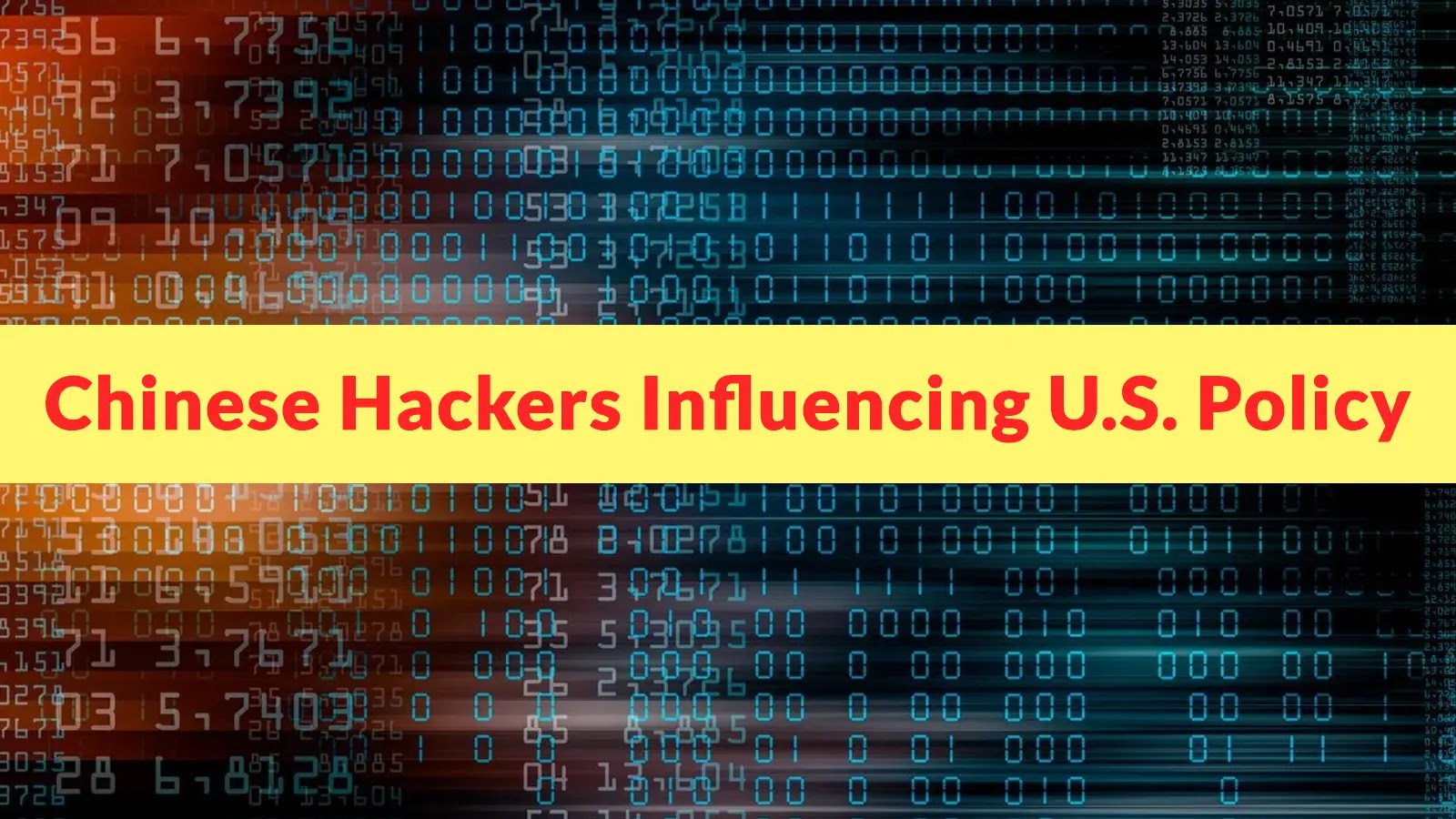
Chinese Hackers Organization Influence U.S. Government Policy on International Issues
The geopolitical landscape is increasingly shaped not just by diplomatic exchanges and military might, but by the relentless, stealthy actions of state-sponsored cyber adversaries. For years, cybersecurity experts have tracked the persistent efforts of China-linked threat actors targeting U.S. interests. However, new revelations underscore a worrying escalation: these groups are now demonstrably influencing U.S. governmental decision-making processes on international policy through sophisticated cyber intrusions.
The Evolving Threat: Targeting Policy-Shapers
Recent intelligence highlights a critical shift in the operational focus of China-linked threat actors. Their objective extends beyond mere espionage or intellectual property theft. The current strategy directly targets organizations pivotal in shaping American international policy. This isn’t about stealing blueprints; it’s about altering the very fabric of policy discourse and potentially, the direction of national and international strategy.
A significant incident in April 2025 brought this into sharp focus. A sophisticated intrusion into a U.S. non-profit organization, deeply embedded in policy formulation, revealed the sophisticated tactics employed by these adversaries. The attackers successfully established long-term network access, indicating a clear intent for sustained intelligence gathering related to policy matters. This is a strategic play, aiming to understand, predict, and ultimately influence U.S. positions on global issues.
Tactics and Objectives: Beyond Espionage
The operational methodology of these threat actors demonstrates a high level of sophistication and patience. Their primary objective appears to be:
- Long-Term Network Persistence: Establishing footholds for extended periods, allowing for continuous data exfiltration and intelligence gathering.
- Targeted Intelligence Collection: Focusing specifically on policy documents, communications, and internal deliberations that inform U.S. international policy.
- Understanding Decision-Making: Gaining insight into the rationale, concerns, and potential pressure points influencing U.S. governmental decisions.
This approach moves beyond traditional espionage. By understanding the intricate layers of policy development, these actors can potentially pre-empt U.S. actions, craft counter-strategies, or even subtly manipulate outcomes by feeding disinformation or altering data points in critical policy documents if they achieve sufficiently deep access.
The Broader Implications for U.S. National Security
The influence of foreign adversaries on U.S. governmental policy, even indirectly, carries profound national security implications. This cyber campaign could:
- Compromise Strategic Advantage: If adversaries understand U.S. policy positions before they are publicly articulated, they gain a significant strategic advantage in international negotiations and competitions.
- Undermine Trust and Integrity: Infiltrations into organizations advising the government can erode public trust in the policy-making process and question the impartiality of decisions.
- Facilitate Disinformation Campaigns: Access to sensitive policy discussions could be leveraged to craft highly effective disinformation campaigns designed to sway public opinion or sow discord.
- Impact International Relations: Altered or leaked policy information could strain diplomatic ties and complicate international alliances.
Remediation Actions for Policy-Shaping Organizations
Organizations involved in governmental policy-making, particularly non-profits and think tanks, are now primary targets. Robust cybersecurity measures are no longer optional; they are foundational to national security. Here are critical remediation actions:
- Enhanced Threat Intelligence Sharing: Actively participate in intelligence sharing platforms to stay abreast of evolving tactics, techniques, and procedures (TTPs) of state-sponsored actors.
- Multi-Factor Authentication (MFA) Everywhere: Implement strong MFA across all systems and services, especially for remote access and privileged accounts. This dramatically reduces the risk of credential theft exploitation.
- Endpoint Detection and Response (EDR) Systems: Deploy advanced EDR solutions to monitor endpoint activities, detect anomalous behavior, and respond rapidly to potential intrusions.
- Regular Penetration Testing and Red Teaming: Proactively identify vulnerabilities by conducting frequent penetration tests and engaging in red team exercises to simulate advanced persistent threats.
- Network Segmentation: Isolate critical data and systems through robust network segmentation, limiting the lateral movement of attackers even if they gain initial access.
- Employee Security Awareness Training: Conduct continuous training on phishing, social engineering, and secure computing practices, as human error remains a primary attack vector.
- Patch Management: Maintain a rigorous patch management program to ensure all software and operating systems are up-to-date, addressing known vulnerabilities such as those often exploited in initial access (e.g., vulnerabilities linked to unpatched RDP or VPN services). While no specific CVEs were mentioned in the source for the April 2025 incident, attackers frequently leverage publicly known flaws, like those for which vendors issue patches.
- Incident Response Plan: Develop and regularly test a comprehensive incident response plan, ensuring clear roles, responsibilities, and communication protocols in the event of a breach.
- Data Encryption: Encrypt all sensitive data at rest and in transit to protect it even if exfiltrated.
Key Takeaways
The ongoing cyber campaigns by China-linked threat actors targeting U.S. organizations involved in influencing international policy represent a significant escalation in geopolitical competition. These sophisticated intrusions are not merely about information theft; they aim to subtly influence and shape the very direction of U.S. governmental decision-making. For organizations at the nexus of policy, a proactive and robust cybersecurity posture is paramount. It is an essential defense against adversaries seeking to undermine national interests through the shadows of the cyber realm.





